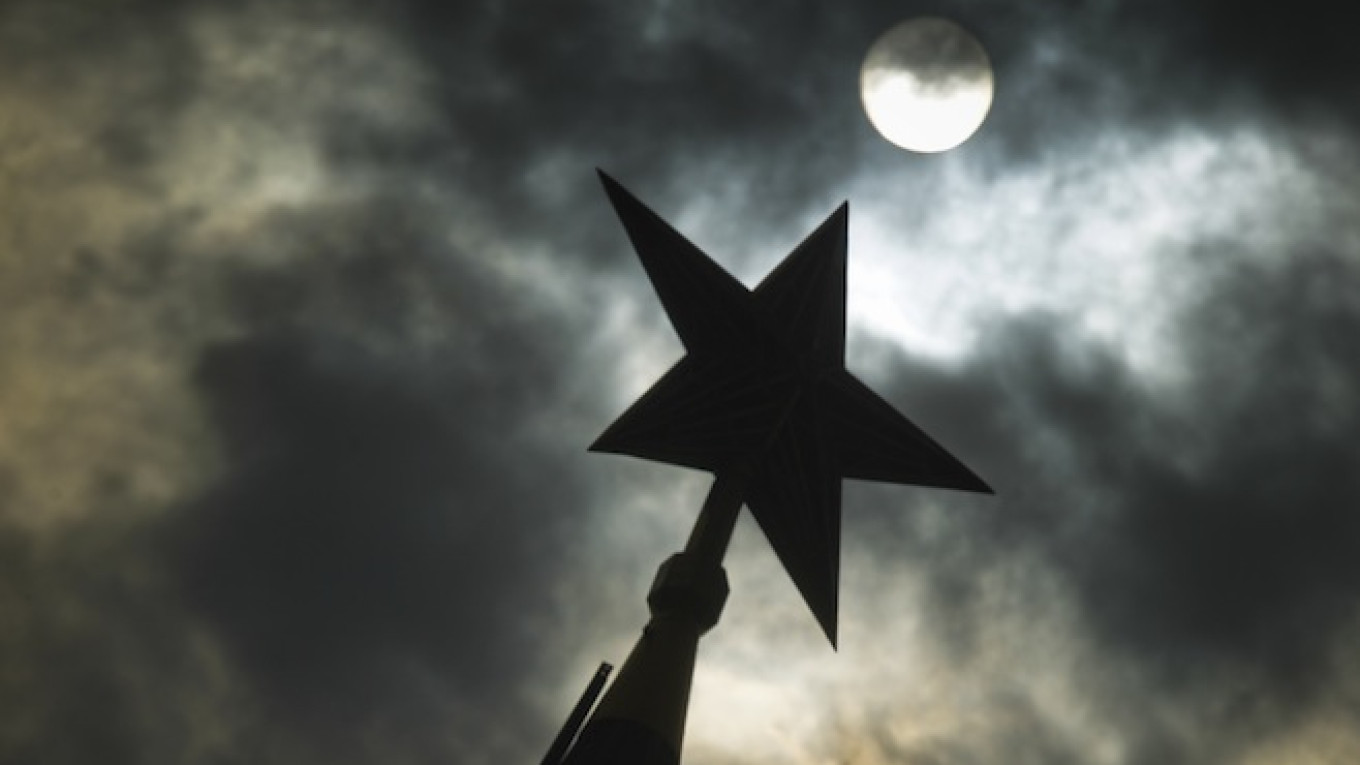Russia and China are ready to undertake joint-missions to the Moon and Mars, Deputy Prime Minister Dmitry Rogozin said Monday at the first-ever Russian-Chinese Expo.
"If we talk about manned space flight and about the exploration of outer space, the joint-development of the Solar system … is primarily [focused] on the Moon and Mars, we are ready to move forward with our Chinese friends hand-in-hand," Rogozin said a roundtable discussion at the expo in the Chinese city of Harbin, RIA Novosti reported.
Rogozin conceded that the Russian space industry is in a precarious position — a string of spectacular and embarrassing launch failures by generally-reliable vehicles in recent years have highlighted the need for reform.
However, he assured the panel that Russia attempts to consolidate the industry under the recently-created United Rocket and Space Corporation would fix the malaise "very soon."
As Russian engineers work to identify why Russia's first rocket of post-Soviet design, the Angara, failed to launch on Friday, Oleg Ostapenko, head of the Federal Space Agency, or Roscosmos, said Monday that Russia will begin pursuing even more ambitious rocket designs at a meeting with space industry officials in Samara in August, Interfax reported.
According to Ostapenko, Russia is looking to create a super-heavy rocket for missions to the Moon and Mars. This rocket will not be the heavy version of Angara but an entirely different rocket.
"To fly to Mars, the Moon … the [Angara] rocket is not enough," Ostapenko said. The Angara heavy booster, built on the foundation of the light booster that failed to launch this weekend for a yet unknown reason, will be able to lift just 25 tons into Earth orbit, while the Saturn V rocket that took American astronauts to the Moon in 1969 could lift 130.
"This raises the question of creating a new class of super-heavy vehicle," he said, adding that "any nation capable of doing anything serious in space — primarily the U.S. and China — are on that path."
In the meantime, Russia and China are looking to join forces on near-term projects, such as the creation of spacecraft using only components from those two countries, as well as building satellites for earth observation and communication.
Following Putin's visit to Beijing in May, Roscosmos and its Chinese counterpart have signed a series of spaces agreements, the most concrete being one that concerns satellite navigation programs. Rogozin said that Russia's Glonass navigation system and the Chinese Beidou will be "very good" if combined with each other.
Read more about the budding Russia-China space partnership and deep space ambitions:
Russia, China Sign Space Cooperation Agreement
A Message from The Moscow Times:
Dear readers,
We are facing unprecedented challenges. Russia's Prosecutor General's Office has designated The Moscow Times as an "undesirable" organization, criminalizing our work and putting our staff at risk of prosecution. This follows our earlier unjust labeling as a "foreign agent."
These actions are direct attempts to silence independent journalism in Russia. The authorities claim our work "discredits the decisions of the Russian leadership." We see things differently: we strive to provide accurate, unbiased reporting on Russia.
We, the journalists of The Moscow Times, refuse to be silenced. But to continue our work, we need your help.
Your support, no matter how small, makes a world of difference. If you can, please support us monthly starting from just $2. It's quick to set up, and every contribution makes a significant impact.
By supporting The Moscow Times, you're defending open, independent journalism in the face of repression. Thank you for standing with us.
Remind me later.


